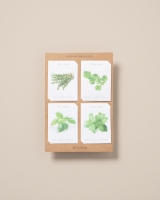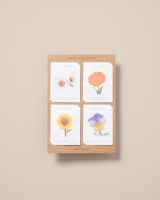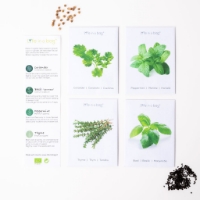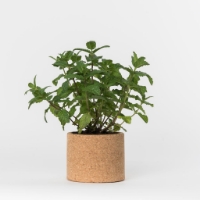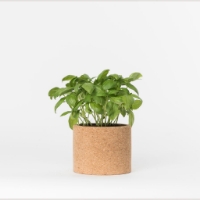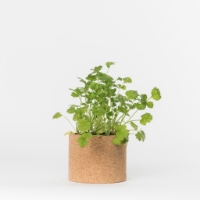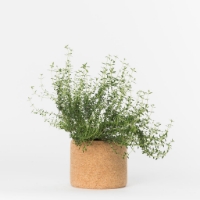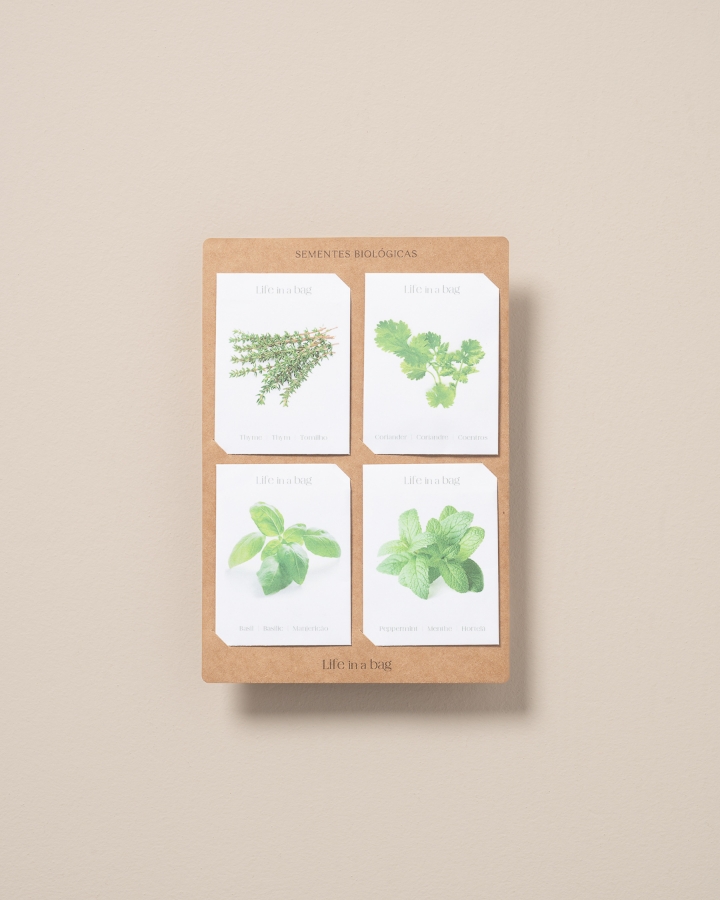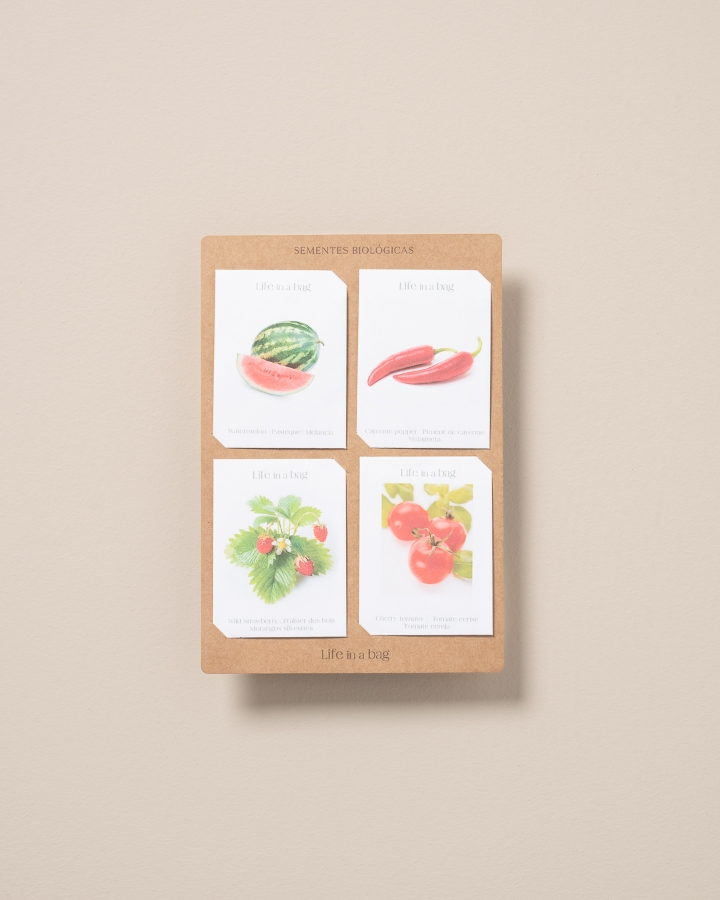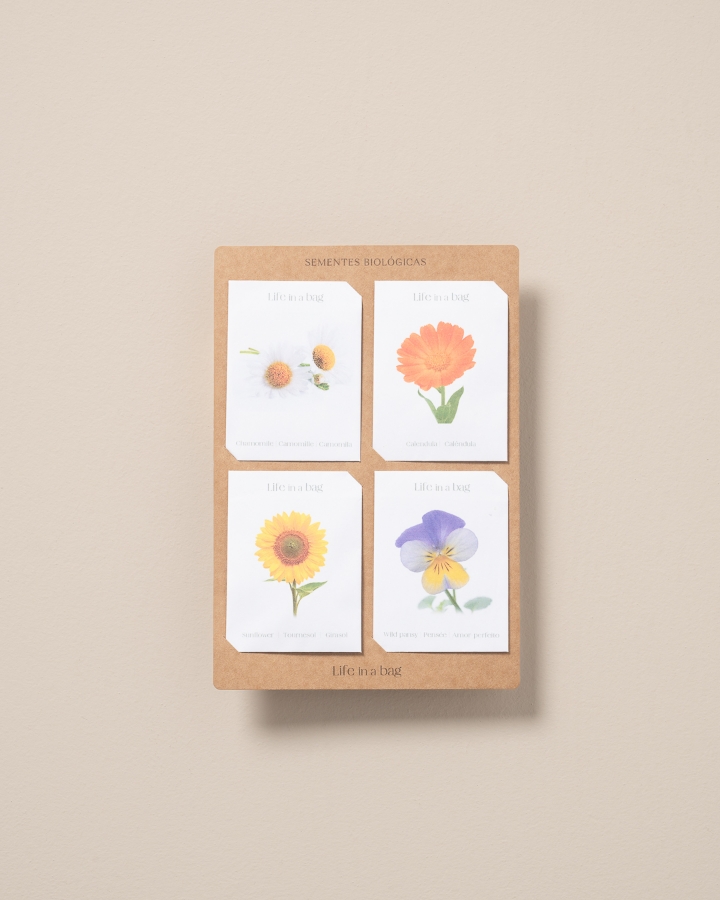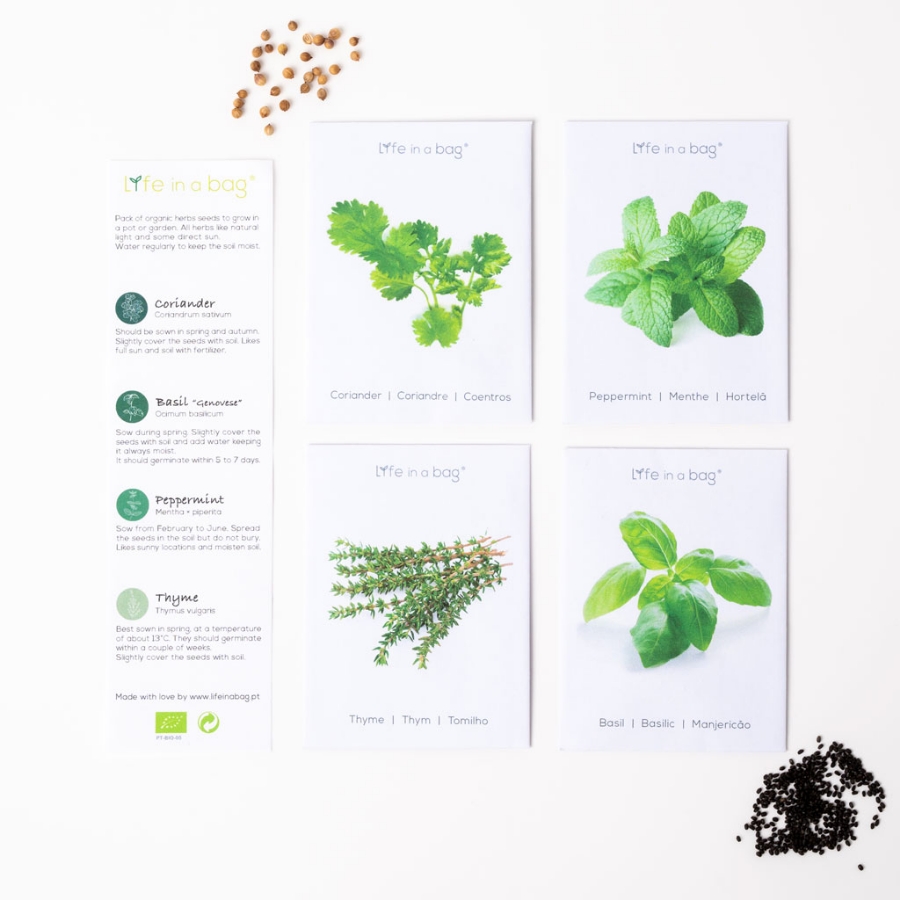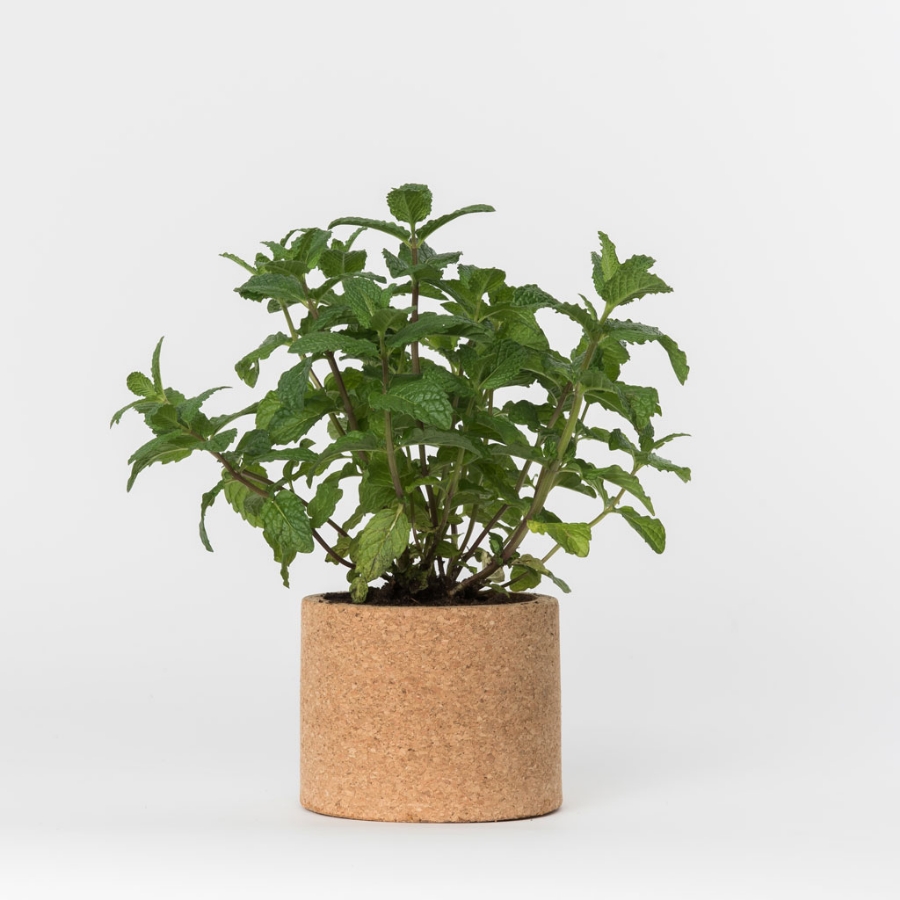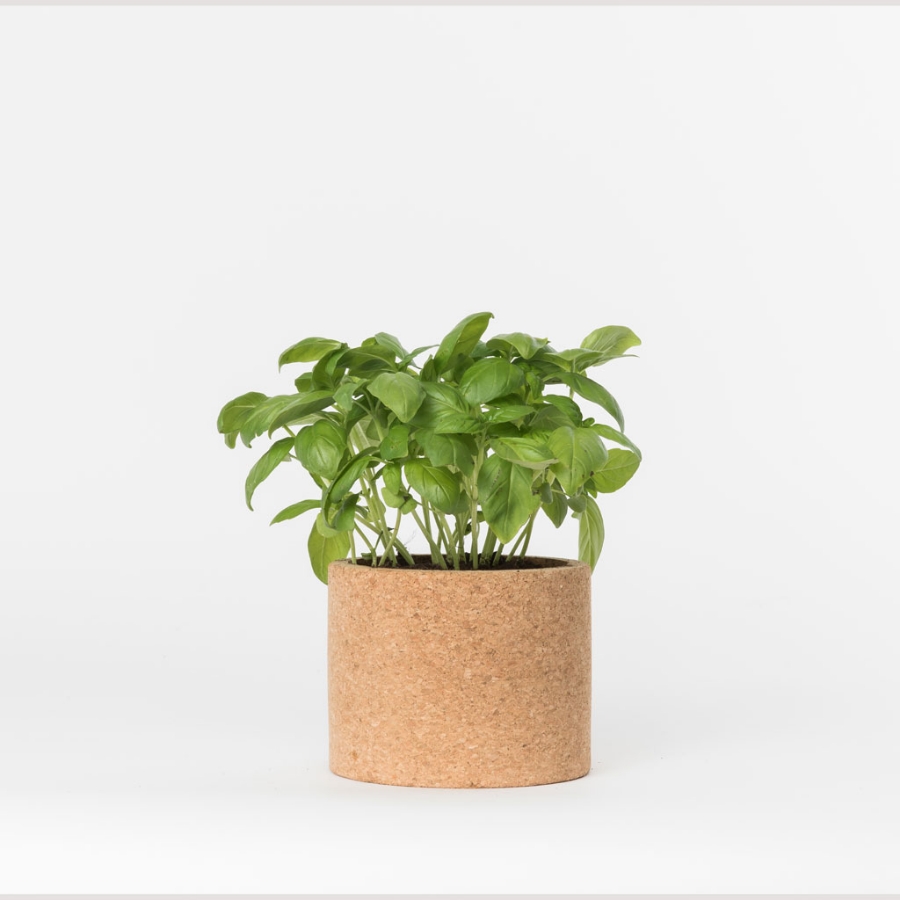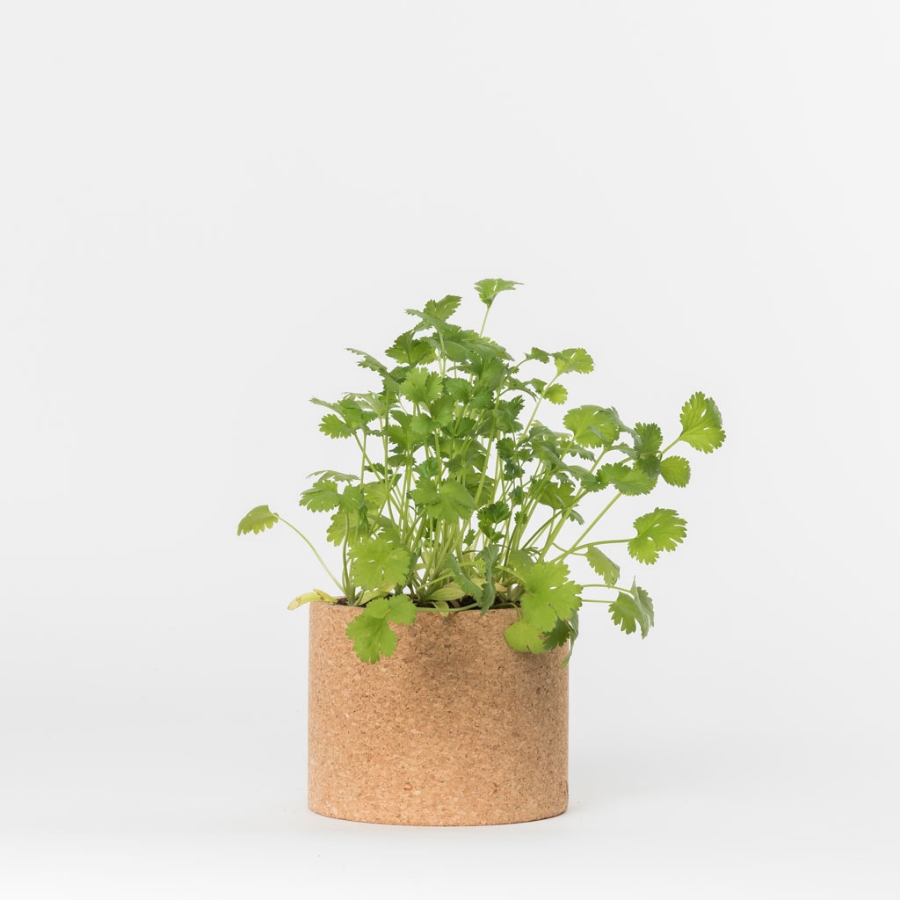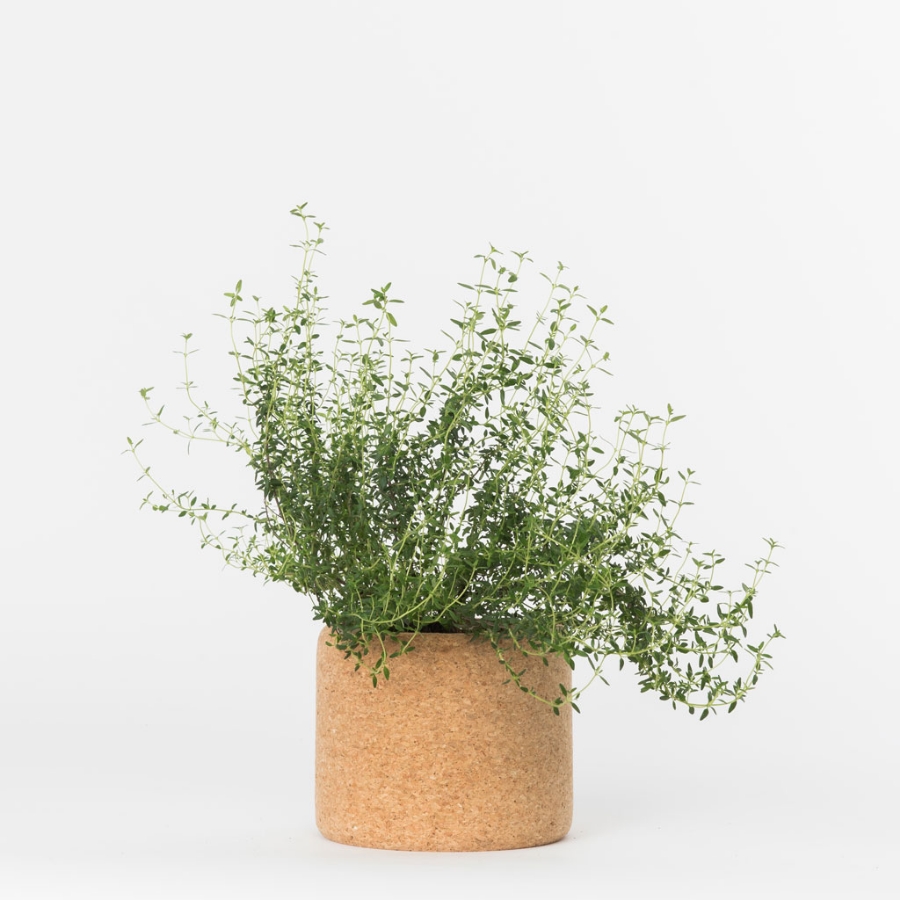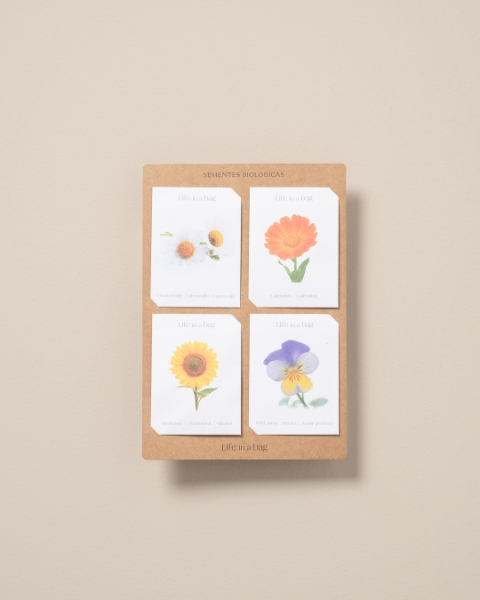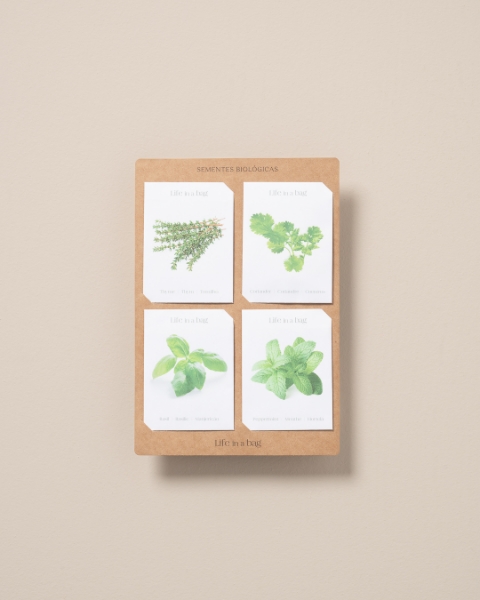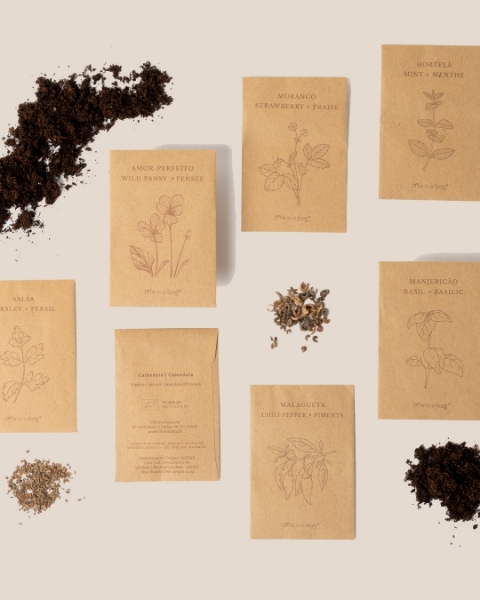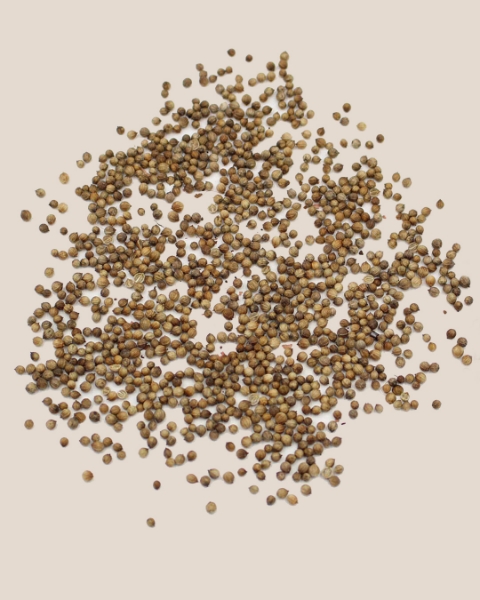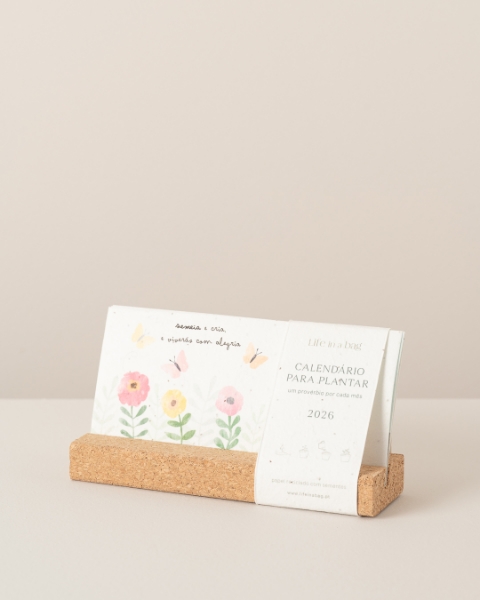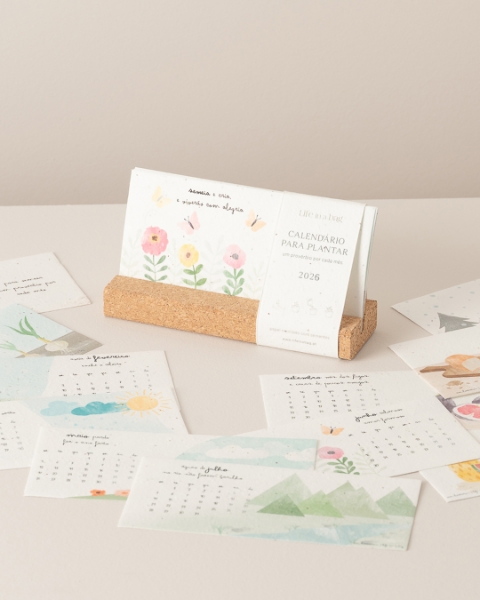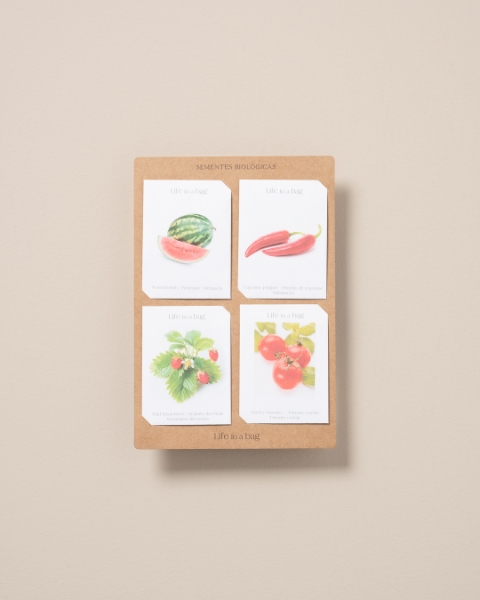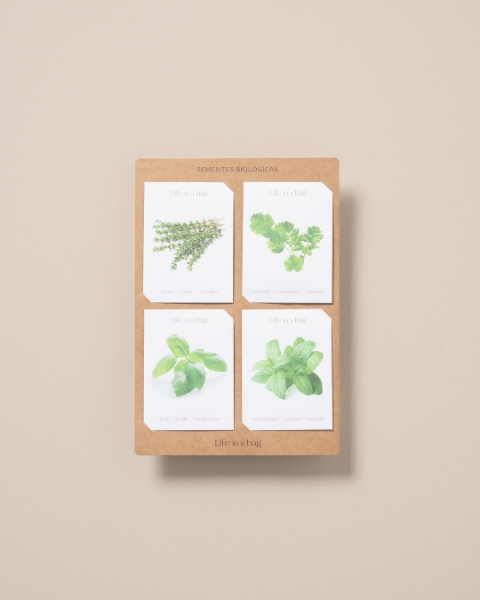Description
Why a seed pack?
Practical: A pack containing four bags of different aromatic herb seeds along with cultivation instructions. Even for beginners, growing various herbs in a pot, garden bed, or garden is easy and accessible.
Quality: Organic seeds and instructions for successful cultivation.
Versatile: Being economical, it is perfect for those who already have a garden, pots, or a yard and wish to start or continue the experience of sowing and watching their own plants grow.
Sustainable and therapeutic: Handmade with eco-friendly materials that promote a greener and more conscious lifestyle. Caring for plants is a relaxing activity, ideal for reducing the stress of everyday life.
Start your sustainable cultivation experience! 🌿
- Cardboard base with instructions
- Four bags of organic seeds
- Weight: 10 g
- Size: 22 x 15 cm
- Validity: 2 years
- Produced in Portugal
Cuidados e Dicas
- How long does it take to grow?
Coriander can take 6 to 12 days to germinate and about 3 to 4 months to harvest the leaves.
Basil may take between 2 to 3 months before you can harvest the leaves. Always harvest basil from the top; as it grows, consistently remove the upper part of the plant, leaving some leaves below for it to regrow.
Mint can take between 3 to 4 months to harvest the leaves.
Parsley may take between 4 to 6 months to harvest the leaves. - Will it grow back?
Coriander is an annual plant. After harvesting all the leaves, you should replace the soil and plant more seeds.
Basil is also an annual plant. After harvesting all the leaves, you should replace the soil and plant more seeds.
Mint is a perennial plant, meaning it lasts several years. After harvesting all the leaves, you should replace the soil and plant more seeds.
Parsley has a life cycle of over two years; however, after harvesting all the leaves, you should replace the soil and plant more seeds. - How often should I water?
Basil, coriander, parsley, and mint prefer moist soil, but not soggy. Check the soil with your finger: if it feels dry, water near the soil with about a cup of coffee. In summer, more regular watering is needed. Remember that if there is too much water at the bottom, it can harm the plant.
- Should I place it outside or move it to a pot?
Herbs can be kept indoors in a spot with light and direct sunlight (except for mint, which prefers shade and little sun), but they can also be placed outdoors in a location with natural light, sun, and sheltered from the wind.
- Do you have whiteflies on the leaves?
Your plant is infested with whiteflies. To combat this, dissolve 1 teaspoon of soap flakes and add 5 drops of oil to half a liter of warm water, then place it in a spray bottle. Spray until the whiteflies are well covered. You can also use neem oil, which is a natural insect repellent.


